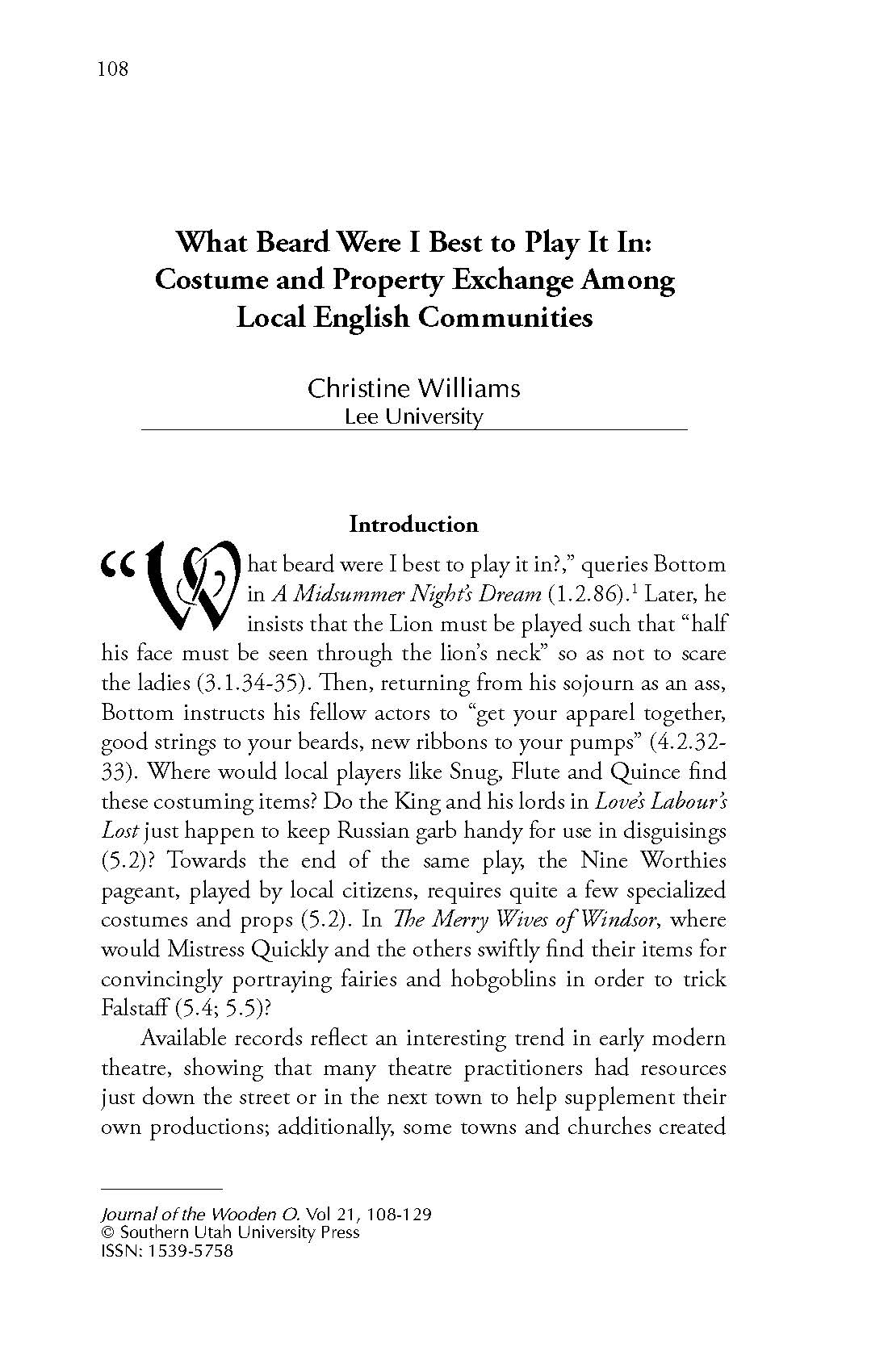What Beard Were I Best to Play It In Costume and Property Exchange Among Local English Communities
Main Article Content
Abstract
“What beard were I best to play it in?,” queries Bottom in A Midsummer Night’s Dream (1.2.86).1 Later, he insists that the Lion must be played such that “half his face must be seen through the lion’s neck” so as not to scare the ladies (3.1.34-35). Then, returning from his sojourn as an ass, Bottom instructs his fellow actors to “get your apparel together, good strings to your beards, new ribbons to your pumps” (4.2.32-33). Where would local players like Snug, Flute and Quince find these costuming items? Do the King and his lords in Love’s Labour’s Lost just happen to keep Russian garb handy for use in disguisings (5.2)? Towards the end of the same play, the Nine Worthies pageant, played by local citizens, requires quite a few specialized costumes and props (5.2). In The Merry Wives of Windsor, where would Mistress Quickly and the others swiftly find their items for convincingly portraying fairies and hobgoblins in order to trick Falstaff (5.4; 5.5)?
